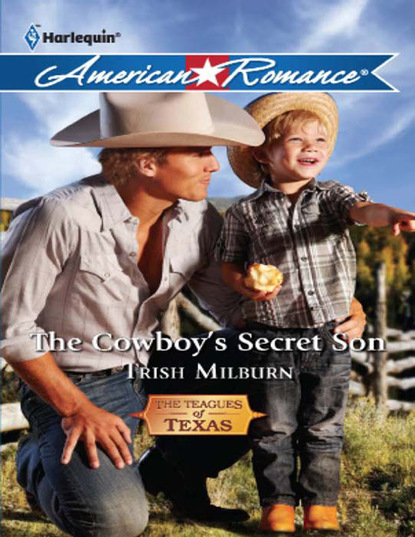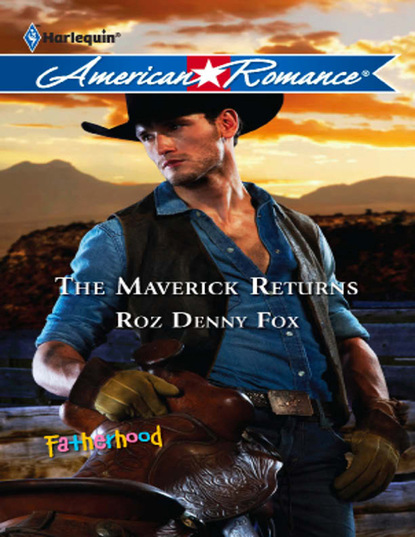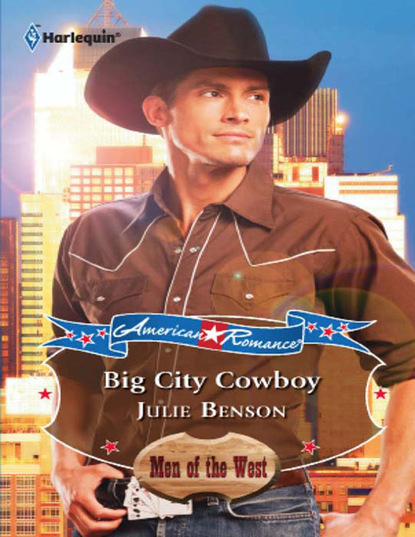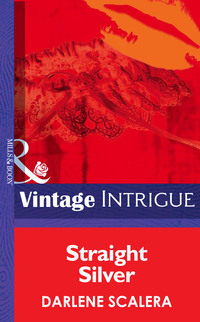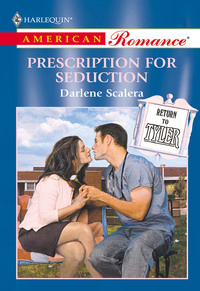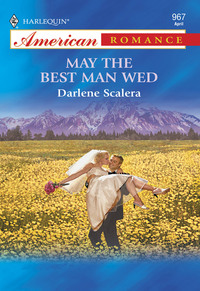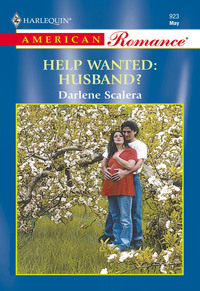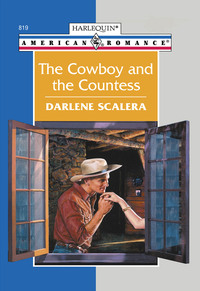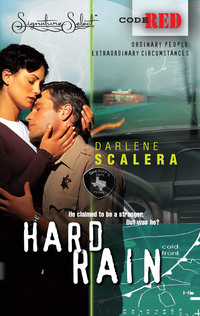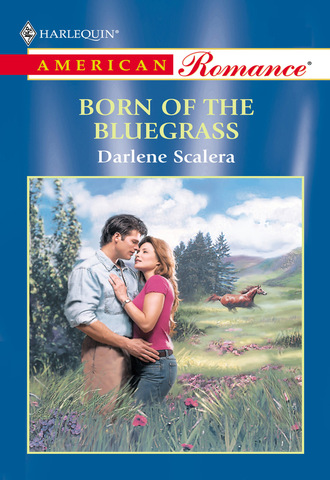
Полная версия
Born Of The Bluegrass
Reid nodded now to the one man he still trusted, then turned his attention back to the horse coming down the lane.
“What do you think?”
The horse trotted by, his ears pinned, his hind end bouncing, pulling so hard at the reins, his rider was gritting his teeth. “He’s a bombshell.”
About a hundred yards away, the animal reared up, but the exercise boy was ready for him and kicked him forward. A few lengths down the rail, the Fox Run Farm trainer leaned out over the rail and shouted, “Contain him.”
Smiley watched the horse head for the turn. He was a mammoth man with a perpetual scowl that had earned him his nickname. But despite his size and scowl, there was a constant calm around him. The horses had taught him to walk slowly and speak softly.
“I knew a gelding once who moved like that in the back end, and he—”
He broke off, a life at the racetrack having schooled him in superstitions and jinxes. “I would want to see some X rays,” was all he’d say.
Reid watched the dark colt, long-legged, tight-bellied, all reckless desire to run, and although a healthy respect for curses and hexes wouldn’t permit either man to say this aloud, both knew what they saw as the dark horse shot past them. It could have been Aztec Treasure flying across the soft soil.
“He’s a stall walker.” Smiley’s gaze never left the colt. “Guard told me he had a fit last night, pawing at the door and snorting, running in circles as if already on the track. The vets leave him to last. He’ll take a nip as soon as your head is turned. Imagine he likes to kick too, but the groom who’s with him now has been with him through the infections and the fracture, and they say he’s almost playful with her.”
They watched the animal go wide, grinding his bit, fighting the rider.
“Horse does love to run though.”
Reid looked at the trainer, saw his rare smile of secret delight reserved solely for Thoroughbreds and Kentucky bourbon.
Smiley looked at his stopwatch, then back at the horse. “Some that ornery are just mean or maybe scared. This one though, he thinks he’s superior. You can see it in his eyes. There’s no wildness there or fear. Just one hundred percent insolence.”
“His dam was Every Bit A Lady. Good grass mare. Had some success in the New York stakes.”
Smiley nodded. “As steady as they come.”
“This one though—he’s up, he’s down. The Foxes have about written him off as one big mistake.”
Smiley silently studied the horse.
“He’s running in a claimer tomorrow.”
The large man glanced over. “And I thought you came up to Saratoga for all the high society hoopla?”
Reid returned the other man’s wry smile. Both knew the invitations had been few after the accident and the investigation. Those that did come now went unanswered.
Smiley looked back across the oval. “But, here you are, scouting for salvation.”
Reid followed his trainer’s gaze. They’d both seen it happen before. One horse. That’s all that was needed. A few healthy purses on the track, then an enviable income earned in the breeding shed for a good number of years. One horse.
The two men stood so close, their elbows hit as they leaned on the rail and watched the horse run, tail streaming straight out, nose, neck, back all aligned, born like hope, to go forward.
“He’s had a few setbacks, hasn’t been able to get his performance back up. They wanted him to have some impressive runs before they turned him out to stud. He only started one season before he was waylaid with ailments. I’m betting he’s got a few wins in him.”
Smiley, as always, watched the horse. “I’ll give you my best.”
It was the closest thing to a promise at the track.
“I’ll work with you on this one.” Reid saw the trainer slip him a glance. “We should have enough time until the rains come. If they do come early, I’ll ship him south the last few weeks, but I’ll go with him.”
“You taking this one personal, huh?”
The horse went by at a walk now. The rider exited the track, steering the animal toward the barns.
“It’s always personal.”
The animal’s head swung from side to side and his ears lay flat as he fought being reined in. Reid headed toward the colt, following the winded, damp horse as if already assured redemption.
The colt’s ears were still pinned when they reached the barns. A female groom giving a leg up to a rider watched the horse’s return, then crossed the soft dirt toward the animal. She was thin with the lean frame that comes from excessive work or excessive worry. Her face was unadorned and her hair in the single simple braid of a young girl. But as she moved toward the animal, Reid saw beneath her straight-legged denims and loose T-shirt, the fullness of breasts, the curves of hips, the body of a woman.
“Get the hose for this one,” the rider warned as he dismounted. “He’ll never stand still for the sponge.”
The groom reached behind the horse’s head and scratched him on the spot of the withers where horses can’t reach. Reid saw the animal’s head turn to look at the diminutive woman. The colt’s ears pricked forward.
“He’ll let me know,” the groom replied. “He’s the boss.”
Reid moved toward the horse as the woman took something from her pocket, offered it in her palm to the animal. “A peppermint, a carrot or two, and he’s a lamb,” she told the rider as the horse nuzzled her palm. “He just likes to remind you of who he is.”
She looked even smaller next to the beast she still soothed. She stroked the horse’s heaving side. Her movements were unhurried, reassuring, the quiet, consistent gestures of hands that had given care their whole life.
“They tell me you’re the only groom he’ll have.” Reid moved closer to the horse.
She looked up, meeting his gaze. He had heard the soft Kentucky in her drawl but there was more, something else vague but still familiar. He looked into the pale green of her eyes, clear as water, and, for a moment, was disoriented. She turned her head away, her long braid swinging forward, falling over her shoulder, across the rise of her breast. There was the warmth of the animal between them and the lingering uneasy confusion created by the woman’s profile. Then Reid remembered. She was the woman who’d caught his nephew yesterday when the boy had run wild across the backside.
“We’ve met, haven’t we?”
Chapter Three
He saw fear in her pale green eyes. He hadn’t meant to frighten her. He knew it wasn’t de rigueur for the owners and jockeys to talk to the grooms. The track was divided into two worlds—the racing set and the training set. He, however, had always lived in both and even if he hadn’t, wouldn’t have abided such a distinction.
“Yesterday, here at the stables.” He smiled to put the woman at ease. Those light green eyes looked at him. “Weren’t you the one who corralled my nephew? Little guy?” He measured a height of about three feet with his hands. “Faster than the speed of light?”
She nodded, but didn’t return his smile.
He stepped back, observing once more the animal’s conformation, the legs, etched, muscular columns stacked straight and clean. Looking at them alone was a pleasure.
“How is he?” the groom asked.
He looked at her. Her beauty was quiet. A man wouldn’t see it at the first glance nor probably the second, but if he was wise enough to look a third time as Reid did now, he would wonder how he’d missed it before. “Who?” he asked.
“The boy.” She looked away from him as she spoke, busied herself removing the saddle. The horse swung his head toward him.
“Sleeping I hope, but that’s a long shot. Odds are he’s already up, pestering his grandmother for a Moon Pie.”
“A Moon Pie?” The groom paused, the horse’s tack in her arms. “In the morning?”
Reid stepped forward and took the tack from her with such a natural movement, she didn’t object until it was no longer in her hands. He ignored her protests, hoisting the tack higher and marveling at the small woman’s strength. “His favorite breakfast. I don’t doubt he gets it now and again when I’m safely out of sight. My mother spoils him rotten.”
As he turned from the tack stand, he saw the girl’s lips curve and knew he’d put her at ease. She had a lovely full-lipped smile. He smiled back at her. “How long have you groomed for this outfit?”
“Almost two years.”
He nodded toward the horse. “You took care of him when he fractured his pelvis?”
“And when he had the lung infection, the colic.” Her smile disappeared, leaving a sudden maturity in her face far beyond her years.
“No wonder he trusts you. You’ve stuck by him.”
“He’s just had a bit of bad luck is all.” The colt shuffled. She caressed the animal’s neck in silent communication. “That doesn’t mean you abandon him.”
A cloud came across the woman’s features and her eyes darkened to the green of May. She turned, led the horse to a waiting pail of soapy water.
“Loyalty. I like that.” Reid thought of the innuendo following his brother’s death and Aztec Treasure’s fatal injury. The investigation had eventually ruled the incident an accident, but most said that was only because there was no evidence to prove otherwise. Reid still heard the whispers when he walked into a room.
“Obviously so does he,” Reid noted as the horse rested his nose on the woman’s shoulder.
The woman didn’t look at him as she began the colt’s bath. Reid sensed he had made her uncomfortable again. He should go, let her do her work. Still he stood, watching her slip the sponge rhythmically across withers to loins, the steam rising from the colt’s flanks.
“You just have to pay him a little attention now and then. Everybody is too quick to forget who he is.” She rinsed the horse. “But he knows exactly who he is.”
She finished putting on the cold-water bandages and blanketed the colt. “A winner,” she said quietly as she watched the horse being led away by a hot walker. She looked directly at Reid. “It’s his meanness they talk about but it’s his heart they’ll remember.”
Reid saw in her expression she loved the animal as only grooms could—with the bonds of a mother to a child. He understood. He himself was drawn to the colt. He looked at the horse being hand-walked and knew there was something that colt could give him. A dream.
He turned back to the woman. The sensation remained as if she, too, had the answers to endless questions. The sense of familiarity returned, stronger this time, obviously fostered by their shared fondness for the horse being led around and around the walking ring.
The groom glanced up and saw his study. She busied herself cleaning up, uncomfortable once more. He should go. His own reluctance surprised him. He picked up the pail for her. Her hand shot out, grabbed the pail’s handle.
“Thank you.” She squared her feet, made her stance firm but he saw from her inability to hold his gaze, she was ill at ease. He let go of the bucket.
“Goodbye…” Funny he should feel such an intimacy, yet he didn’t even know her name.
“Goodbye.” She set the pail down and squatted, pretending to tighten her shoelaces. Out of the corners of her eyes, she watched him walk away. She thought about the boy. She wouldn’t let herself think about the man, the way even now her breath came hot and thick. She could only think about the boy. Nothing else.
Saratoga’s closing day was next Monday, Labor Day. Many of the outfits were packing up this weekend, moving on to Belmont Park, then south for the winter. Dani was going south, too, but not with Solstice and the Fox Run team. She was going home to Kentucky and the Keeneland Racecourse, only fields away from Hamilton Hills. She hadn’t told anyone. She had to tell the colt first. The horse already knew something was changing. He’d been edgy, walking the stall more, dancing with a jump in the air on his front legs and two or three head tosses. She had to tell him today.
She saw the walker leading the animal back, a look in the horse’s eye as if he were listening to something far away, something humans could never hear or see. She took the lead line, murmured, “There, now,” heard the tenderness in her voice.
She led him into his freshly-bedded stall, he always seeming too big for his box. The late summer light found the straw and turned it blond. She picked up the hard brush and the currycomb, and as she rubbed, she explained everything in a low voice that now held a clef of sadness. She found the soft brush and began to alternate a hard stroke with a soft one, the rhythm matching her murmurs of hope and fear, and her hands dully cramping.
She crouched to the side, running her hand down the front of the legs, feeling for the heat or swelling that signaled hurting. “Staying away isn’t a choice, you see. In fact, there is no choice. All right, yes, some will say there’s always a choice, and in my head, I know that.”
She rubbed the legs with a mix of alcohol and liniment. “But in my heart, there is no choice. I have to go. Or it will be like giving him up all over again.” She wrapped the legs with clean white cotton from the ankle to just below the knee and then wrapped them again with flannel, careful they were tight enough to stay but not too tight to cause the legs to fill with fluid. “I’m only going to be nearby, you see. Not close enough to cause any trouble but close enough to get a glimpse or two, watch him grow. God, you should see him. Maybe you did. Yesterday. Right here at the barns. Yesterday. I held him in my arms.”
She fell silent so the shake in her hands would stop, and she could fasten the last steel pin.
She straightened, unfastened the tethered horse, removed his halter. “I have to go, Solstice. He’s my child, you see.”
She turned, bent to move the feed tub, when she felt a breath along the left curve of her neck and then, the sharp edges of teeth closing around her ear. She didn’t move. Neither did the horse. A slight bearing down and her ear would be his. A long second went by. The pressure along her flesh stayed the same, not hard enough to cut the flesh but tight enough to hold on. Another second passed. She heard the scratching of another groom raking outside. She stood with the perfect stillness that had bonded her to this horse. As soon as they’d met, she’d recognized the animal’s need for a space to call on and always find calm. After that, when he had come to her and butted her shoulder or nipped the thin cotton cloth on her back, she’d stood absolutely still, giving him one area of quiet in a noisy, confusing world.
She calmly waited, not touching him, not moving. Several minutes passed. Solstice’s mouth opened and his moist grip released her. She straightened, standing a little off to his side. His head turned to her. His eyes, like all horses, set wide so that even when he looked at her, he always seemed to be looking past her. Except this time. She stared at that animal, and he stared back at her without mistake. She saw the white and black of his eyes and within them, a look that seemed to say, “I was listening.” Like she had done when she’d first come and had listened and heard too much noise inside him.
THE NEXT DAY she led this animal she loved to the paddock. His trainer had been eyeing the second tier of stakes races for two-year-olds when Solstice’s colic had come. His other injuries had dropped him back further. His failure to rally and his willfulness had brought him to today’s claiming race. Still he was nickering and pulling like it was Derby Day, and she had to jerk the reins a couple times to stop him from doing his dance. He’d known he was going to race when his hay and water had been removed after breakfast, but she suspected his restlessness also stemmed from her divided attention. Even as they entered the circle of the paddock, she couldn’t help scanning the crowd. She was always looking now for Reid and the child. She had hoped they’d be with the Foxes, but it was only Prescott and his grandfather who followed the jockey and Solstice’s trainer to the saddling enclosure and into the walking ring.
Then she saw them—Reid, her son, her son—at the outside fence. Reid was watching the horse. The child’s attention was everywhere—to the horses, the milling crowd, the afternoon light, the call of music. She heard, “Riders, up,” and the jockey came forward for a leg up. The cup of a hand was all the connection she would have with the dark-eyed, dark-skinned man about to ride Solstice, but she willed a win into that palm.
The racetrack workers usually gathered at the course’s backstretch to watch the races. Dani, however, headed to the grandstand fence, close to her horse, close to her son and his father.
Another Fox Run groom joined her at the rail as the post parade began. “He’ll park,” he assured her, folding a slice of pizza in half and taking a large bite. “He’s a speedball.”
Dani watched Solstice following the pony girl and the palomino. The horse had seemed to relax as soon as the saddle was put on his back. In his gait was a certainty as he went from a walk to a jog to a canter. Even into the starting gate, always a moment of anxiety, Solstice strode in and waited as if already assured a win.
Dani waited, the sun on her shoulders, her hands holding on to the cool metal fence. The trumpet blast sounded. For a beat, the world went still. Then the gates opened.
“And they’re off,” she whispered, the breeze catching her words and carrying them up, up above to where women in wide hats sipped champagne, a summer strawberry split on each flute’s rim, and her son sat beside his father on spindly bentwood chairs.
The colt broke clean but at the first turn, was six horses back, two lanes from the rail. Still the steady beat to his stride echoed his earlier assurance of being the only winner in this race. He lengthened his stride, passing until he was in fourth position by the second turn. There he stayed as if waiting. Dani saw the hole between the second and third horse and Solstice slip through it as easily as entering a dream, and her voice joined the swell of the crowd as the horse, her horse, headed down the homestretch, the strong August sun turning his coat purple and the daylight decreasing between him and the leader, a gray with white stockings.
Solstice’s proud black head was at the other horse’s shoulder, then neck, the jockey coiled low on his back, a passenger now. Three strides to the wire, the heads aligned until Solstice lengthened his neck and stuck his nose in front of the favorite’s.
The tote board flashed Photo Finish but Dani was already crying, having no doubt who won and not caring that the other groom was chuckling over her reaction to an ordinary race. Solstice cantered, then turned toward the winner’s circle as Dani came to meet him. She smiled at him as the results came up on the board, and they moved into the winner’s circle but once again, Solstice’s looks went around her as if she were in the way.
They came out of the winner’s circle and were heading to the test barn when a man came out and hung the tag on Solstice’s bridle. Horses that ran in a claiming race were up for grabs, and Dani knew the tag now swinging against Solstice’s profile meant another trainer had claimed him. Still she stopped and stared at the tag as if she’d never seen such a thing before. She heard the assistant trainer swear, but the head trainer was stoic, Prescott and his grandfather indifferent. They still got the purse. But whoever had put down the required amount of cash in the racing secretary’s office and dropped the claim slip got the colt. It happened all the time.
She was also going away, Dani reasoned. She too had been claimed. Still the reckless excitement of the win left her as she led the animal toward the spit box. She heard a child’s voice and thought she was imagining it. Then she heard Reid’s voice answering, “Yes, that black beauty there.” She looked and saw Reid and Trey coming toward her and Solstice until she was only conscious of the man, the boy, the animal.
Reid smiled and nodded hello as he came up and stood next to her at the horse’s side. Her son stood next to him, holding his father’s hand, looking up at the huge animal.
The man ran a knuckle gently along the horse’s damp neck. “Ready to come home?” he asked.
Dani looked at Solstice. The animal looked right through her.
Hamilton Hills Farm
Lexington, Kentucky
HAMILTON HILLS had been built high on an emerald plateau as if destined for greatness from the beginning. Reid looked out across the acres of legendary lush grass, the reaching lines of white fence and knew the idyllic scene was an illusion. The farm that had set the standard for achievement in the Thoroughbred industry for half a century had died with his brother.
Still, few could view the vast tranquillity spread out before him and not believe a better tomorrow was coming. Reid was one of them. He looked at the land steadfast in its innocence and simplicity and was glad to be home. He’d brought the horse. And the woman. The woman with the deep silence and the sure hands. Her name was Dani Tate. He didn’t need another groom. He barely managed to give the men that were left three square meals, a roof over their heads and an adequate salary. But horses were creatures of habit, and it was more than track superstition that made a trainer reluctant to break up a good horse-groom team. Everyone knew the stories of perfectly healthy horses dropping dead for no reason after being separated from a favorite groom. So when the woman had offered to come to Hamilton Hills with the colt, he’d said yes. In fact, he hadn’t even been surprised when she’d asked. She seemed to need the horse as much as the horse needed her. Now Reid needed them both.
He headed toward the barns, passing the small white building with peeling red trim that was the workers’ canteen. It should’ve been closed down, but it seemed like such a small tribute to the workers who had remained, faithful to the ideal that had been Hamilton Hills.
He passed the equine swimming pool, remembering his brother’s pleasure when it had been built, back when he had mortgaged all their futures, before the bloodstock market collapsed. The pool was empty except for leaves; the underwater treadmills and Jacuzzis used to treat the racehorses’ strains and sprains long gone. The private veterinary hospital was shut down also as were two-thirds of the barns, their residents having been led several years ago through the mist, across the fields to the auction block at Keeneland Racecourse.
He rounded the half-mile training track his father had built years ago when he tired of shipping a hundred yearlings daily to a rental track eight miles away. This year, there were only thirty-two yearlings in the training barn. Yet, last season, there had been only eighteen.
One side of the heavy double-wide door on Barn 4 was rolled back, the smells of sweet clover, oil soap and leather meeting Reid as he entered. Smells that had washed through his dreams since he was a child; smells that were now becoming like home to his own nephew.
Several stalls down from the entrance, Bennie Montano was leveling the dirt floor with a wooden rake, humming softly. He looked up as Reid came in.
“Morning, Bennie.”
The man leaned on his rake. “Morning, boss.” Dust danced in the sunlight trying to pierce the cool, dim interior.
“Everybody settling in?” Reid referred to the horse and the woman, both who’d arrived in the van yesterday.
The dark-eyed man looked at Reid. “She’s a woman.”
Reid looked at the man who’d been grooming at Hamilton Hills since Reid was a boy. After Reid’s father died, it was Bennie who’d brought Reid to the barn, gave him a shot from the bottle of rye he always kept buried deep in the bran barrel and sat with him until the day was nothing but barn lights and deep blue sky.
“That’s true. The groom’s a young woman,” Reid said in a tone that asked if that would be a problem.
“Personally, it don’t matter to me. The women seem to have a way about them with the horses, taking care of them as if they were their own kids. And this one, she’s skinny but strong. You can see the way she looks at that horse, she thinks of the animal like family. But…”




